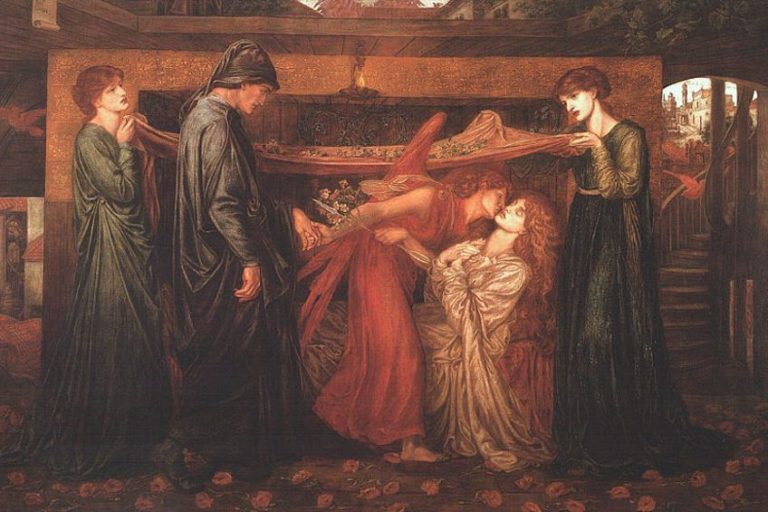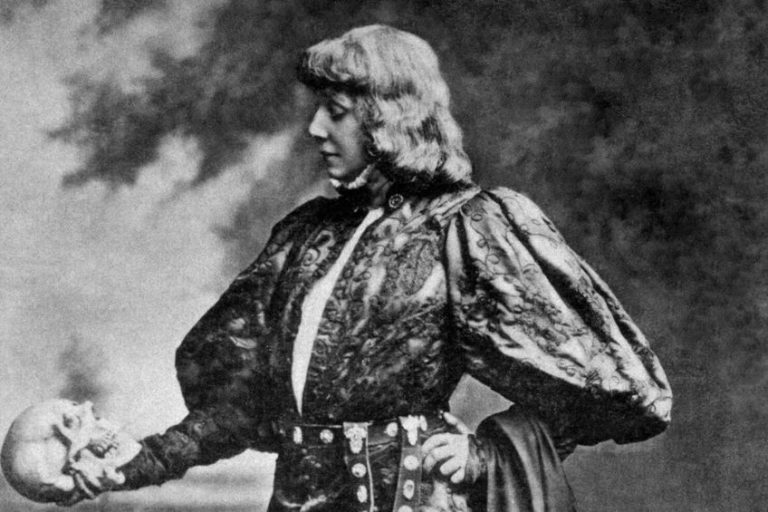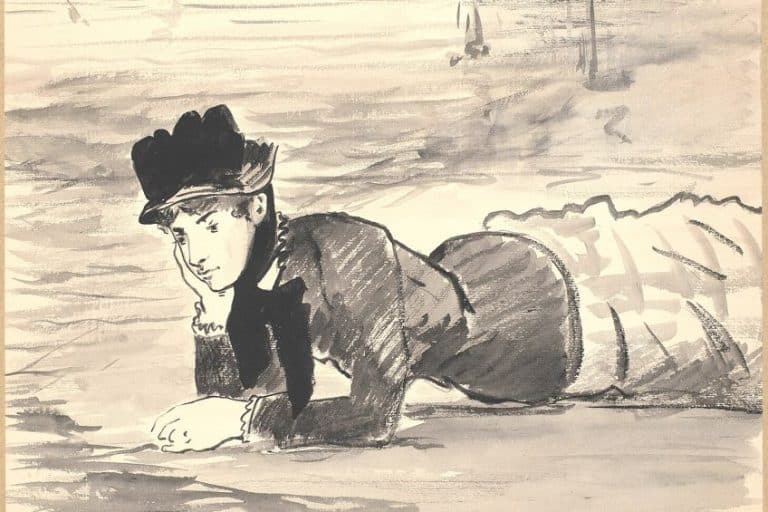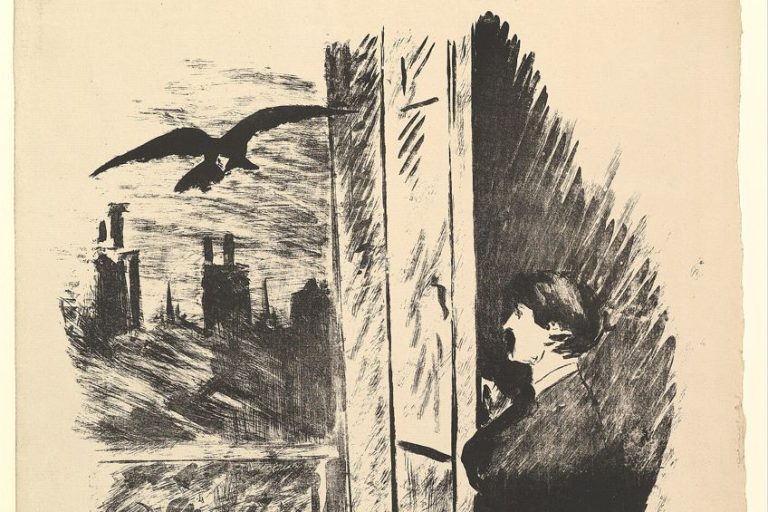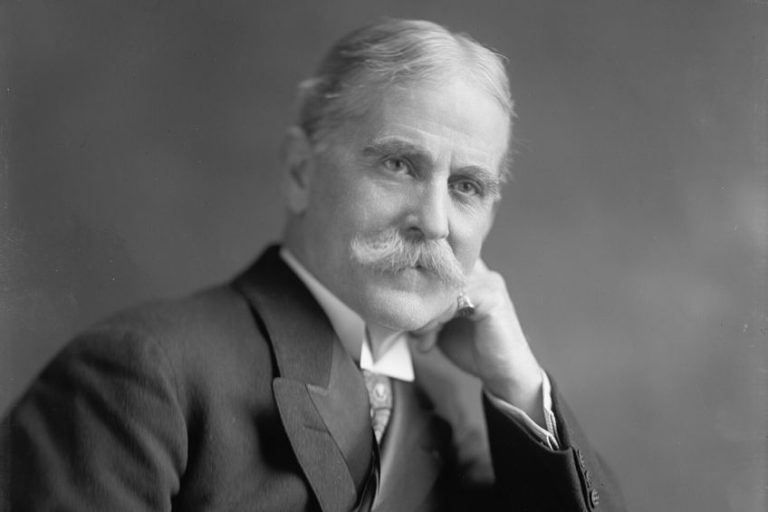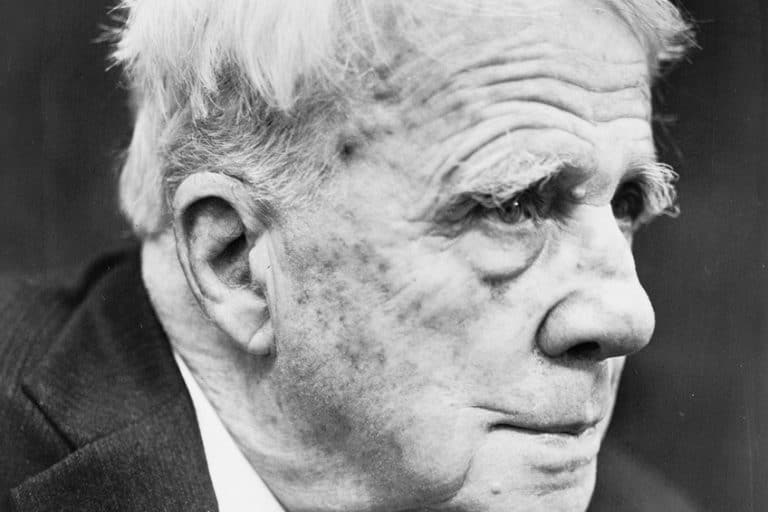Sylvia Plath Poems – Explore the Mind of a Troubled Poet
There are not all that many Sylvia Plath poems in the world when compared to some of the other famous poets out there. There is a good reason for that, and the reason is that Sylvia Plath died at a young age and did not have the time to produce as much work as she likely would have been able to produce had she remained alive. This article will explore a handful of Sylvia Plath’s poems to learn just why this poet has remained so beloved and also how her work can likely inform us of the struggles that she faced in her life. If you would like to learn some of what there is to know about Sylvia Plath’s poetry, then you have come to the right place!
A Few Sylvia Plath Poems
Sylvia Plath has come to be seen as one of the most important poets of the mid-20th-century period. The impact of her poetry has also come to be bound up in the personality behind that poetry, and she herself came to be seen as just as famous as her work. The reason for this is because her work is deeply personal and often reflected her own lived experience. She was a woman who struggled with mental illness and would eventually take her life in a particularly harsh and unusual manner, as she sealed her own kitchen and placed her head in an oven to suffocate from the gas fumes.

Her life, and her death, have led to much of the posthumous success and widespread adoration for her poetry. Her work is squarely within the confessional poetry tradition and has remained some of the most influential to date. This form of poetry is exactly what it sounds like as it explores the life of the poet through highly personal confessional-style discussions. This is also what many of the poems that I discuss below will be about. So, if you wish to see how the personal and artistic can interact with one another, look no further, and get started on the first of these Sylvia Plath poems.
Mad Girl’s Love Song (1953)
| Date Published | 1953 |
| Type of Poem | Free verse |
| Rhyme Scheme | Variable |
| Meter | Iambic pentameter |
| Topic | Mental health and love |
Mad Girl’s Love Song is one of the earliest Sylvia Plath poems, and it was published while she was in her early twenties. However, despite being such an early poem from her career, it would still explore the kinds of themes for which she would become so well known. The poem also makes use of a fairly consistent rhyme scheme, which would come to be more unusual for her, and she instead transitioned more into completely free verse work. Regardless of this, the poem’s subject matter echoes later work.
The central theme explored in this poem is that of love and mental illness in general.
She explores the feelings of love that she does experience but is not certain how to go about accepting that love. She does not know if the love that she experiences is even love at all, and instead comes to view it with a degree of skepticism. Is it real love at all or is it rather something that she has imagined? As the speaker has suffered from mental health issues, these kinds of questions come to be particularly pertinent and resonant to those who have experienced similar thoughts and feelings.
The Moon and the Yew Tree (1963)
| Date Published | 1963 |
| Type of Poem | Free verse |
| Rhyme Scheme | None |
| Meter | None |
| Topic | Parents |
The Moon and the Yew Tree is a poem that mixes feelings and explorations of how parents can have an effect on us alongside religious discussion. The poem makes use of two primary metaphors for her parents with her mother being represented by the moon, which is often taken as a feminine force, and her father as a yew tree. Throughout the poem, there are also examinations of a religious upbringing with a particular focus on Catholicism, which was a faith that had an impact on Sylvia Plath as she grew up because of her mother’s conversion from the religion to Unitarianism.
However, the images of Catholic belief are strewn throughout the poem.
In this instance of Sylvia Plath’s confessional poetry, she uses these metaphors of her parents to explore how neither of them was particularly beneficial to her as she grew up in the world, and that she did not gain much from their presence over her. Her father is viewed as someone distant and her mother as someone who did not provide her with love as she grew, and this is likely why this poem, and many other Sylvia Plath poems, have come to be so beloved by so many because loads of people can see their own experiences reflected within those that Plath expressed.
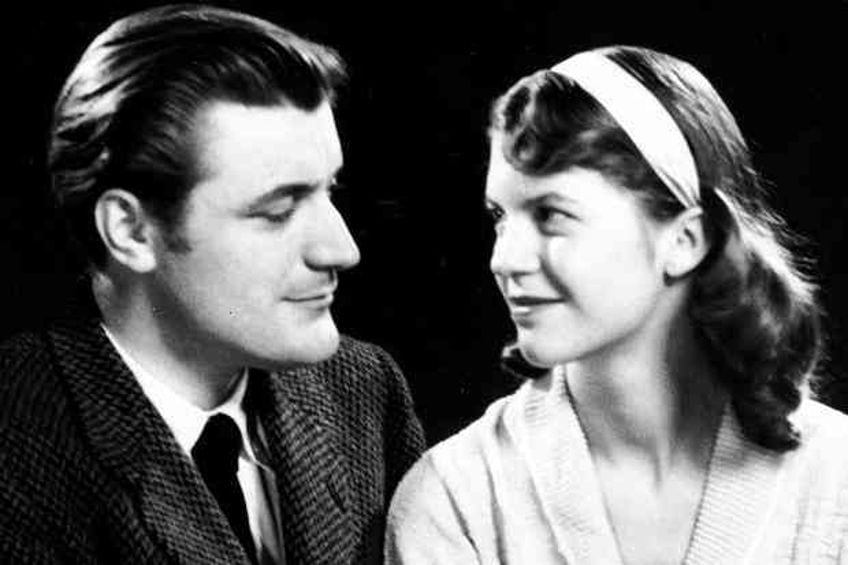
Daddy (1965)
| Date Published | 1965 |
| Type of Poem | Free verse |
| Rhyme Scheme | None |
| Meter | None |
| Topic | Fathers |
Daddy is one of the most famous Sylvia Plath poems, and there is a very good reason for this. Many instances of her poetry took close and careful aim at very personal and painful topics for her, this one takes a familial perspective. As the name suggests, this particular poem is concerned with her father. Based on the other poetry that Sylvia Plath wrote, we can assume that she would have had a difficult relationship with her father, and that is very evident in this particular piece of work.
In the poem, there are a variety of metaphors that are used to describe her father, particularly the image of Nazis.
While the metaphor of Nazism is not the only metaphor that Sylvia Plath makes use of in this poem, it is the most striking of them all as well as being the most prominent. There are also comparisons between the speaker and a Jewish victim in the Holocaust. There is even direct mention of concentration camps like Dachau and Auschwitz. This kind of imagery is also problematic as comparisons between the literal Nazi death camps and a difficult childhood may seem extreme, but that is also the nature of the kind of confessional poetry for which Sylvia Plath was so well known.
Lady Lazarus (1965)
| Date Published | 1965 |
| Type of Poem | Free verse |
| Rhyme Scheme | None |
| Meter | None |
| Topic | Death and rebirth |
Lady Lazarus is a poem that makes direct use of religious imagery while exploring themes related to death and rebirth. Immediately, it is worth mentioning that the figure of Lazarus was one that, in the New Testament of the Christian Bible, Jesus Christ brought back to life. This is considered to be one of the most notable of the Christian figure’s miracles.
As a result, the use of this image to explore death and rebirth makes a lot of sense for someone to use when they wish to explore these kinds of themes.
However, the use of the “lady” part of the poem’s title gives it an immediate feminine air that is quite distinct from our general understanding of Lazarus and how he has been depicted in literature to date. The poem explores Sylvia Plath’s attempts at suicide and the way that she rises from the ashes repeatedly. Although, as we know her ultimate fate, she would not forever experience any sense of rebirth and would instead perish from this world.
Tulips (1965)
| Date Published | 1965 |
| Type of Poem | Free verse |
| Rhyme Scheme | None |
| Meter | None |
| Topic | Thoughts on recovery |
Tulips is the sort of poem that springs from a single image. In this case, it comes from the perspective of Sylvia Plath while she recovered in the hospital from an appendectomy and had a bouquet of tulips beside her. In this poem, the hospital is viewed in a rather positive light. It is a place that is sterile, but still one that is calm and peaceful.
The realities of the world outside the hospital come to be seen as something that is harsh and difficult to handle.
This is a perspective on the real world and the lives that we are forced to live that will likely resonate with many who have similar feelings. And gazing at the flowers that we have received while in recovery can cause us to see them as indicative of the peacefulness associated with recovery, and the realities of the world that wait right beyond those days of recovery.

Ariel (1965)
| Date Published | 1965 |
| Type of Poem | Free verse |
| Rhyme Scheme | None |
| Meter | None |
| Topic | Introspection |
Ariel is about a horseback ride. The poem explores the feelings that the speaker experienced as she climbed atop a horse in the morning and felt the natural power of this creature beneath her. While she rides this horse, she can feel her own sense of limitation breaking away as the horse breaks into a gallop.
The feeling of this kind of power around yourself is enough to cause many to feel a certain connection with the non-human animal that you are sharing this experience with, and that appears to be the case for the speaker.
These kinds of connections between humans and animals are often explored in poetry, but the free verse style of this particular poem, with its highly abstract imagery, makes it a lot more unique than many of the other poems out there in the world that explore similar ideas. This poem bears the same name as a posthumous collection of Sylvia Plath poems, and for that reason, it has also gone on to become one of the most famous examples of her poetry.

The Munich Mannequins (1965)
| Date Published | 1965 |
| Type of Poem | Free verse |
| Rhyme Scheme | None |
| Meter | None |
| Topic | Perfection |
The Munich Mannequins is a poem that explores feelings of feminized perfection and beauty. The name itself calls to mind the kind of mannequins that one might find in a clothing store or fashion show. They hold a certain level of feminine perfection within their forms, and they are slick, sleek, and slim. They are the Westernized ideal of a woman’s beauty, and while these kinds of beauty standards certainly can and have changed in more recent years.
This kind of image is one that can be immediately understood coming from a woman who lived during the 1950s and 1960s.
The poem focuses on the artificiality of this beauty, and how it is an inhumane kind of beauty that has been forced upon humans. They are cold and sterile beings within a harsh world, and this is precisely the kind of place in which the work of Sylvia Plath is able to shine. She can cast a light upon the feelings that a woman might experience upon coming to see these kinds of images that have been forced upon many women throughout the world.
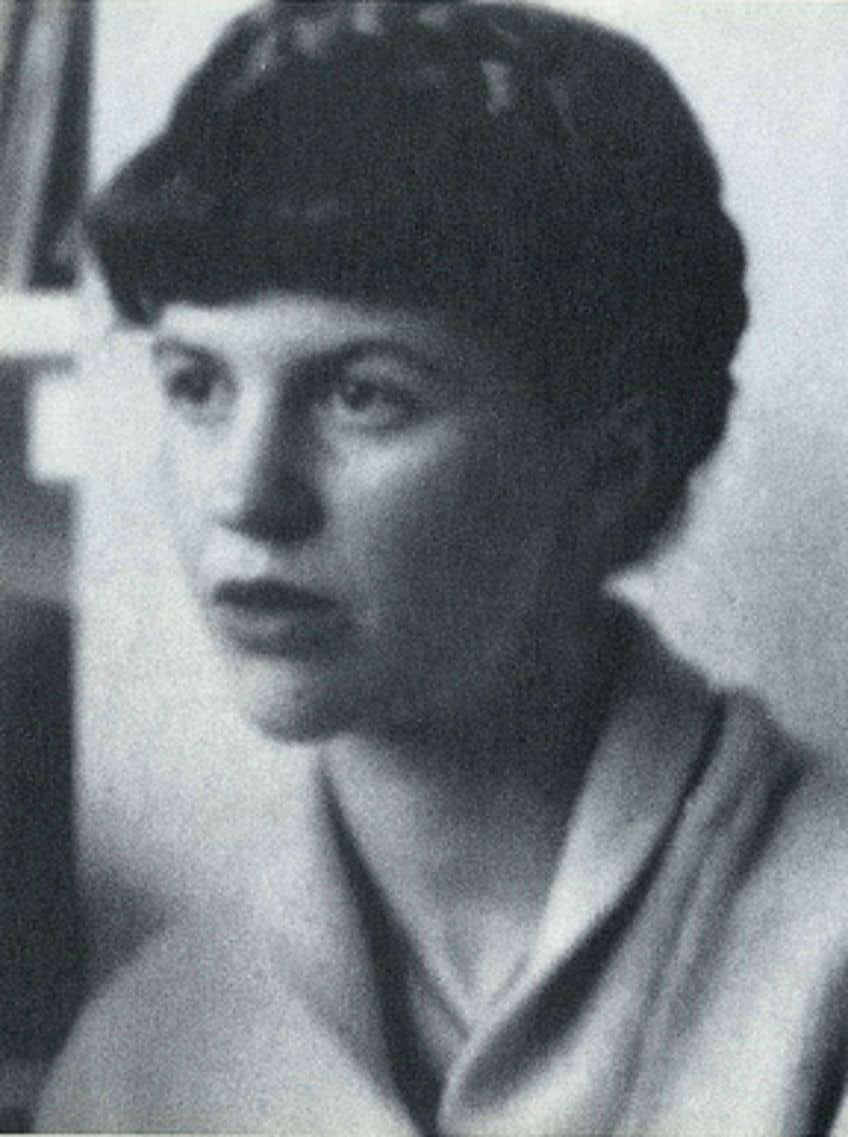
Mirror (1971)
| Date Published | 1971 |
| Type of Poem | Free verse |
| Rhyme Scheme | None |
| Meter | None |
| Topic | Aging and death |
Mirror is a poem concerned with the realities of death and what comes with a natural death. The poem is quite interesting because it does not actually operate from Plath’s perspective, but rather from the perspective of a mirror.
This mirror shows Plath the realities of aging and how she has changed over time.
Our reflections are powerful things that can do a lot of damage to us, and it is doubtless that these are the kinds of thoughts that likely swirl around in the heads of many when they gaze into the mirror. These silvery objects reflect the realities of our bodies back on us, and we often don’t want to see what is shown within the mirrors around us.

Crossing The Water (1971)
| Date Published | 1971 |
| Type of Poem | Free verse |
| Rhyme Scheme | None |
| Meter | None |
| Topic | Isolation |
Crossing The Water is a poem that focuses on an introspective discussion of Plath’s struggles with grief. The poem is written as a journey on a boat, and this boat slowly crosses over dark waters.
This kind of imagery can be seen as reflective of the inner turmoil within the mind of the speaker as they contemplate their own life.
This poem explores a number of different themes that Sylvia Plath was known to explore, such as isolation, loss, and the fragility of life itself. This has gone on to become one of the most famous Sylvia Plath poems, and even though it is a relatively short poem, it has also been noted for its potent messages and imagery.
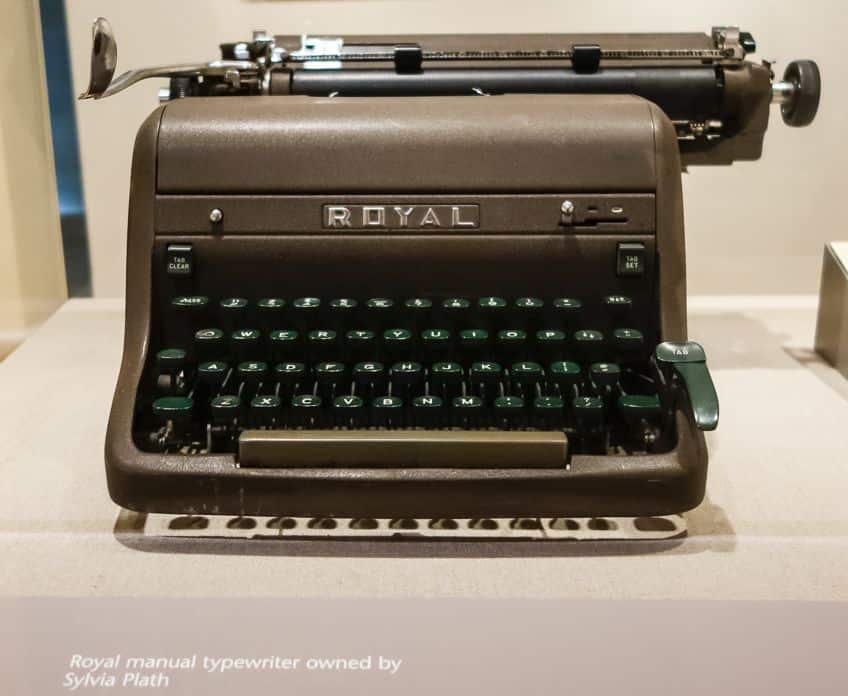
Ennui (2006)
| Date Published | 2006 |
| Type of Poem | Sonnet |
| Rhyme Scheme | None |
| Meter | None |
| Topic | Weariness |
Ennui is the last of the Sylvia Plath poems on this list and also one of the earliest that she ever wrote. While much of the work that Sylvia Plath wrote was published posthumously seeing as she had such a young and tragic demise, there is nothing quite as posthumous as this poem. It was published nearly half a century after her death, and that was because it was discovered far later, and this poem was only discovered later because it was written and published when Sylvia Plath was still an undergraduate student. It had simply remained in obscurity for a very long time.
Regardless of the length of time that this poem has remained hidden from the world, it still shows the kind of themes that Sylvia Plath would often explore.
The title itself refers to a kind of existential boredom with life and the poem follows suit. It explores feelings of sadness and disappointment with the world and what all it has to give us. However, something that does set this very early Sylvia Plath poem apart from many of her later poems, is that it does follow a structure of sorts. It is a sonnet that follows a loose Petrarchan structure. It does still maintain a certain level of free verse style, but it is quite unlike the sort of poetry that Sylvia Plath would write later in her life, such as all of those above. However, one of her earliest written poems may be a great place to end things off in this list of Sylvia Plath poems.
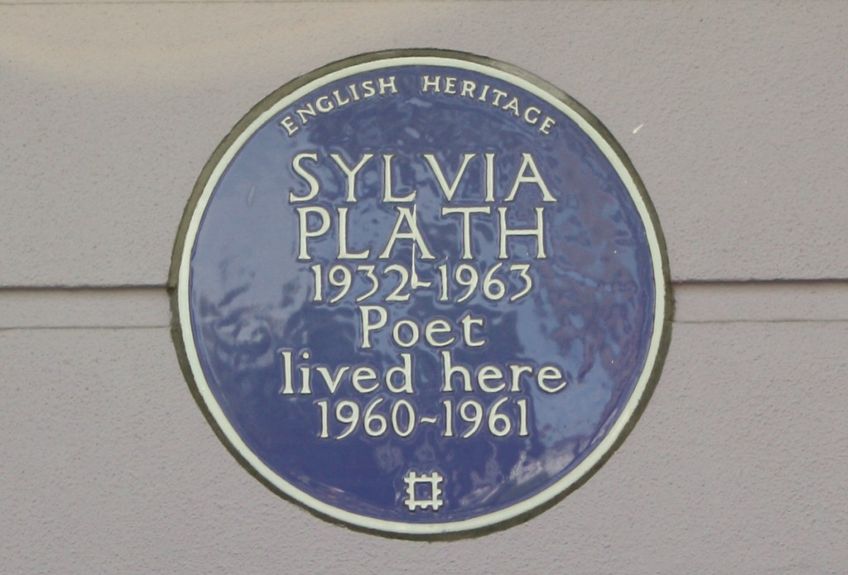
There are sometimes figures out in the world like Sylvia Plath, and they burn immensely bright because of their powerful and fiery work. However, thanks to their own personal demons, they are not able to survive in the real world. Sylvia Plath tragically committed suicide at a young age, but she left behind an oeuvre that has remained one of the most potent ever produced. Her influence on confessional and free verse poetry is hard to overstate, but it is a tragedy that there is not a lot more work of hers out there.
Frequently Asked Questions
Who Was Sylvia Plath?
Sylvia Plath was an American writer who is mostly known for one novel and several collections of poetry, although much of her work was only published after her death. She would go on to become an important figure in the realm of feminist literature and would have a profound impact on works that explored ideas of mental illness and depression. These were far more uncommon at the time, and many have been inspired by the work that she produced even though she wrote relatively little in her short life.
Why Was Sylvia Plath Famous?
Sylvia Plath was famous for her immense contributions to confessional poetry, but she would come to be immensely famous only after her passing. For instance, she published her first and only novel shortly before she committed suicide. However, she would later go on to receive a posthumous Pulitzer Prize, and this would aid in bringing her to even greater mainstream attention. Her difficult life, unusual death, and provocative poetry are all some of the major contributors to her literary fame.
How Did Sylvia Plath Die?
Sylvia Plath’s death is often mentioned alongside the death of other feminist figures, like Virginia Woolf, because of the unusual ways in which they had chosen to take their own lives. When it comes to Sylvia Plath, she entered her kitchen, sealed all of the possible exit points for gas, turned on her oven, and placed her head inside. She died of carbon monoxide poisoning. Prior to her suicide, she had struggled with depression and had attempted suicide on several occasions.
What Kind of Poetry Did Sylvia Plath Write?
When it comes to Sylvia Plath’s poems, they are generally within the tradition of confessional poetry. This form of poetry heavily focuses on personal feelings, and they can often be autobiographical. This is especially the case for the poetry of Sylvia Plath as they were an outlet for her thoughts and feelings. In addition, much of her work was free verse in nature and could explore the often difficult and jagged thoughts that she experienced.
What Are the Most Famous Sylvia Plath Poems?
While Sylvia Plath certainly did write many poems, she also did not write quite as many as she may have written had she lived longer than three decades. However, some of her most famous poems include Daddy (1965), Tulips (1965), and Crossing The Water (1971). There are loads of other Sylvia Plath poems worth reading and analyzing, but there are relatively few when compared to poets who lived far longer lives.
Justin van Huyssteen is a freelance writer, novelist, and academic originally from Cape Town, South Africa. At present, he has a bachelor’s degree in English and literary theory and an honor’s degree in literary theory. He is currently working towards his master’s degree in literary theory with a focus on animal studies, critical theory, and semiotics within literature. As a novelist and freelancer, he often writes under the pen name L.C. Lupus.
Justin’s preferred literary movements include modern and postmodern literature with literary fiction and genre fiction like sci-fi, post-apocalyptic, and horror being of particular interest. His academia extends to his interest in prose and narratology. He enjoys analyzing a variety of mediums through a literary lens, such as graphic novels, film, and video games.
Justin is working for artincontext.org as an author and content writer since 2022. He is responsible for all blog posts about architecture, literature and poetry.
Learn more about Justin van Huyssteen and the Art in Context Team.
Cite this Article
Justin, van Huyssteen, “Sylvia Plath Poems – Explore the Mind of a Troubled Poet.” Art in Context. March 18, 2024. URL: https://artincontext.org/sylvia-plath-poems/
van Huyssteen, J. (2024, 18 March). Sylvia Plath Poems – Explore the Mind of a Troubled Poet. Art in Context. https://artincontext.org/sylvia-plath-poems/
van Huyssteen, Justin. “Sylvia Plath Poems – Explore the Mind of a Troubled Poet.” Art in Context, March 18, 2024. https://artincontext.org/sylvia-plath-poems/.




